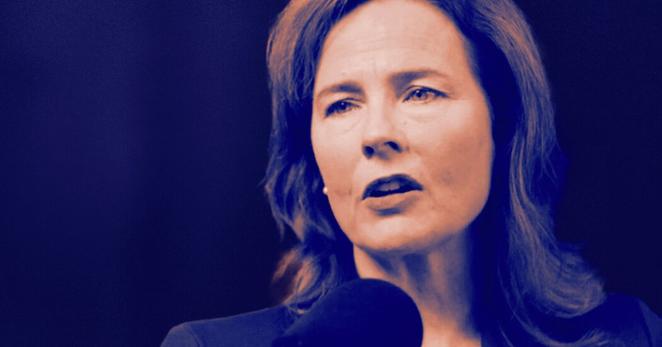MAGA Civil War: Trump vs. MTG, Shapiro vs. Fuentes — The Circus Never Ends 🎪
Man… MAGA beefs have officially gone off the rails.Like, we’re not even in the same political universe anymore — we’re watching reality TV with nukes in the background. You’ve got Donald Trump and Marjorie Taylor Greene throwing shade at each other like two chaotic exes fighting over who gets to call themselves “the real patriot.”Every week, there’s a new passive-aggressive jab, a weird Truth Social rant, or a cryptic tweet that sounds like a breakup song written in ALL […]Yea, the #democraticparty in the House, do a _good_ Roy Riegels move aka "Wrong Way" and make that the START of the END of the #trumpera (#Trump error)
"Roy Riegels... who played for the California Golden Bears from 1927 to 1929. Riegels was nicknamed "Wrong Way" due to his infamous wrong-way run in the 1929 #RoseBowl, which is often cited as the worst blunder in the history of #collegefootball"
Also #ForrestGump comes to mind too 😄
National defense update:
Enemies no longer required.
The President’s got it covered.
The East Wing has already fallen.
#Satire #USpolitics #EastWing #WhiteHouse #Irony #Democracy #TrumpEra
Opinion – Amy Coney Barrett Is Looking Beyond the Trump Era – The New York Times
The Supreme Court justice isn’t making decisions based on public opinion. Credit…The New York Times.Opinion Interesting Times
Amy Coney Barrett Is Looking Beyond the Trump Era
The Supreme Court justice isn’t making decisions based on public opinion.
There’s a roster of cases before the Supreme Court that could reshape the entire Trump presidency and redefine executive power. And my guest this week, Justice Amy Coney Barrett, is likely to be the decisive vote in some of these cases.
Unfortunately but predictably, that means that she couldn’t or wouldn’t respond to my most direct questions about the Trump administration.
But my goal was to push the justice on a question that she can answer, and one that she addresses at length in her new book, “Listening to the Law.” I wanted to know whether her preferred legal theory, originalism, can bend and flex in response to prudential and political concerns.
Barrett believes strongly that it shouldn’t, that justices should rule without worrying about public opinion or who happens to be in the White House. But I tend to think real-world politics constantly tests and limits that ideal. So in our conversation, I’m trying to find those limits and the ways in which even justices devoted to the original meaning of the Constitution have to deal with the highly unusual pressures of right now.
Amy Coney Barrett Doesn’t Need You to Like Her
The Supreme Court justice isn’t making decisions based on public opinion.
Below is an edited transcript of an episode of “Interesting Times.” We recommend listening to it in its original form for the full effect. You can do so using the player above or on Apple, Spotify, Amazon Music, YouTube, iHeartRadio or wherever you get your podcasts. Editor’s Note: Embedded from Spotify below.
Ross Douthat: Justice Barrett, welcome to “Interesting Times.”
Amy Coney Barrett: Thank you for having me, Ross.
Douthat: I honestly would never have said no. [Barrett chuckles.]
Your book is mostly about — and we’re mostly going to talk about theories of jurisprudence, the place of the Supreme Court in American life, possibly some issues related to the Trump presidency and executive power — but it does start with a little window into the personal world of Amy Coney Barrett, so I’m going to start with a couple of questions about that terrain.
We looked it up, and you are the first guest we’ve had on the show who has more children than I do — which is only because we haven’t yet succeeded in booking Elon Musk, I should say.
Barrett: [Laughs.] There’s still time for you to catch up with me.
Douthat: That’s a bold statement. I appreciate your confidence in my youthful energy and vigor.
When you were being nominated, this newspaper, The New York Times, ran a story that talked about your mix of personal and professional obligations and how it made you a certain kind of trailblazer. And the story described you — and you can accept this description or not — as “a woman who is both unabashedly ambitious and deeply religious, who has excelled at the heights of a demanding profession,” even as she speaks openly about prioritizing her faith and family.
I’m curious if you actually see yourself this way at all? Do you see yourself as a particular kind of trailblazer or role model in that kind of balancing act?
Barrett: I don’t see myself as a trailblazer, nor do I love the word “ambitious,” because I feel like the word “ambition” puts a focus on success or ambition for its own sake, which isn’t how I’ve ever conceived of my career.
When I was growing up — I was born in 1972 — my mom stayed home, and the parents of most of my friends had a working dad and a stay-at-home mom. My kids have had a mix, and for them, it’s become unexceptional to have a mom that worked, whereas it felt like a big thing for me to make the choice because my own mother had a large family — I’m one of seven — which is, I say in the book, that’s what I always wanted. That was my No. 1 priority. And I wasn’t sure that I could do that and work at the same time, but I always have, since I had our first child.
So I think my life looks different than the life of my mom and my aunts and my friends’ parents at the time, but it’s one that my own daughters and sons and their friends, I hope, can just treat as unexceptional. Like, you can stay home if you want. You can work if you want. You can do both.
Douthat: Do you think of yourself as a feminist — a conservative feminist, if that is a category that you would accept?
Barrett: I don’t know, labels are so dangerous because they mean different things to different people. I mean, if being a feminist simply means having the view that women can do whatever it is they put their minds to and have opportunities open to them, then yes, I am.
But I think any stripe of feminism that you describe is going to have — labels are risky. So I’ll just say: Yes, yes, labels are risky.
Douthat: Labels are risky, especially when you are charged with the interpretation of the entire U.S. Constitution.
Barrett: [Laughs.] It’s so true.
Douthat: How do you actually do it? And I say this as someone who, obviously, works. Here I am working. My wife is a journalist and writer, and we do a lot of the same kind of balancing that you and your husband have done, and it takes some strange forms. But it’s very challenging. Any number of kids is challenging, but to have a large family and have a busy professional life — I’m just curious: As a Supreme Court justice, how do you feel like you guys make it work?
Barrett: A lot of people ask. That’s probably the question that I get asked most often.
Continue/Read Original Article Here: Opinion | Amy Coney Barrett Is Looking Beyond the Trump Era – The New York Times
#2025 #America #AmyConeyBarrett #DonaldTrump #Education #Health #History #InterestingTimes #Interview #JusticeBarrett #Libraries #Library #LibraryOfCongress #Opinion #Podcast #Politics #Resistance #Science #SCOTUS #SupremeCourtOfTheUnitedStates #Technology #TheNewYorkTimes #Trump #TrumpAdministration #TrumpEra #UnitedStates
🇺🇦 Ukraine Files | Promises, P...
CBS shifts to appease the righ...
🔥 Tensions flare in Trump’s admin as Treasury Secretary Scott Bessent threatens FHFA head Bill Pulte over turf wars & policy battles at a private DC dinner. A showdown spotlighting fierce internal power struggles shaping US housing finance and Fed decisions. 🏠💥 #ScottBessent #BillPulte #HousingPolicy #newz #TrumpEra https://www.politico.com/news/magazine/2025/09/08/scott-bessent-bill-pulte-blowup-00549956?nid=0000014f-1646-d88f-a1cf-5f46b7bd0000&nname=playbook&nrid=2673d050-9b64-4b89-83d8-4d23b8e33335
Mystery surrounds $1.2B Army c...






 🐦🔥nemo™🐦⬛ 🇺🇦🍉
🐦🔥nemo™🐦⬛ 🇺🇦🍉